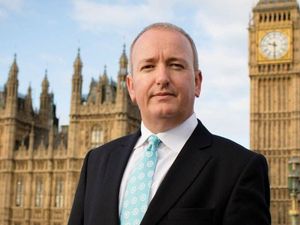Robert Clive condemnation not so simple, says museum curator
Robert Clive was a "surprisingly able man" who is to some extent "landed with the problems created by others later", according to one museum curator.
Ian Picton-Robinson oversees Market Drayton Museum and was speaking as part of an ongoing debate about 'Clive of India', who came from near Market Drayton and conquered much of India for the East India Company in the 19th century.
Petitions have circulated this month calling for his statue in Shrewsbury's town centre to be removed because of his violent actions overseas, and have gathered almost 20,000 signatures. It began after a slaver's statue was toppled by protestors in Bristol.
Mr Picton-Robinson said that it was understandable for his prominence to make people uncomfortable, but argued that he did some good in the country.
"If the current concern is about him as a person, then I think he should be considered as a surprisingly able man, capable of securing the loyalty and support of his men, including the Indians in his military forces and in their dealing with him as a buyer of goods for the East India Company business," he said.
"However, if he is seen as a symbol of the East India Company, then one can understand that his prominence in uncomfortable. I would want to hear from the people of Shrewsbury, and especially of the Indian population of their opinions.
"On the latter point, we had, at the Market Drayton Museum an Indian historian well versed in the company’s activities and their leaders, and he seemed to have great respect for Clive. To some extent Clive is landed with the problems created by others later.
See also:
"That the company dealt badly with the Indians in Madras and Calcutta seems to be recognised. However, Clive’s third visit was expressly to clear up problems there, resulting in several senior figures being sent back to England, who were then resolved to stir up trouble for Clive in the company’s attempt to win back for itself the large sum of money awarded to Clive.
"My understanding from the two biographies [‘Clive of India’ by Mark Bence-Jones and ‘Clive of India’ by R Minnery] is that money was granted freely, even doubled, by the local leader. After his third visit, Clive left money for a pension scheme for the company’s retired soldiers and their families – Indian, not European.
"Clive as a young man was quite wild, it seems, and gains criticism for childhood deeds as though they were the pattern for his life. He was, I guess, totally without fear.
"Yet in adulthood there is evidence of serious learning, achieving a reputation for oratory and writing. His untrained military skills were outstandingly good, adventurous to the point of near-folly, but so successful that England dominated over France in attempts to monopolise trade in India, in which the Indian Nawabs were only too happy for the two European countries to fight their battles for them.
"He reorganised the running of the company in India in a manner which may have set the pattern for the later Indian civil service, and even the later English civil service."
In brief: Who was Robert Clive?

Clive was born on the Styche Hall estate, near Market Drayton, in 1725 and went to school in London before travelling to India with the East India Company in 1743.
After two years in Britain, in 1755 Clive returned to India and two years later retook Calcutta (now Kolkata) for the company at the Battle of Plassey, a key moment on Britain's path to controlling Bengal and then India for almost two centuries.
Corruption and looting saw Clive amass a huge amount of wealth and he returned to Britain in 1760, aged 34.
He was made Baron Clive of Passey, knighted and became Shrewsbury's MP, a position he held until his death.
He went back to India in 1765 for two years before returning to Britain where the activities of Clive and the East India Company in India came under sustained attack.
The famine of Bengal that lasted between 1769 and 1773 and killed around a third of the region's population was said to have largely been caused by the company's policies.
Clive defended himself in Parliament, saying "I stand astonished at my own moderation," and in 1773 Parliament declared that he did “render great and meritorious services to his country.”
He died at home in London aged 49 and is believed to have killed himself.
All the petitions can be found by searching ‘Clive of India’ on change.org.





